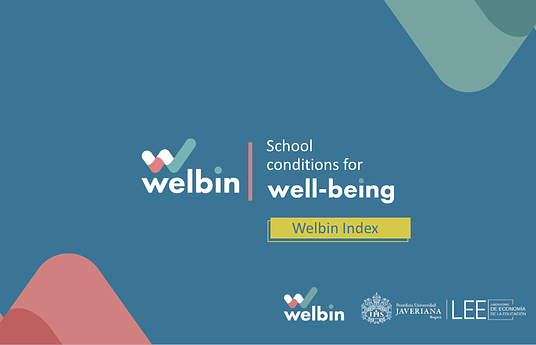Schools are required by governments to have School Improvement Plans. These plans give government, schools, and communities the knowledge and tools to improve learning outcomes. However, many school leaders lack capacity, there is little community understanding, inadequate structured support, and vulnerable groups such as girls and children with disabilities are often left behind.
Increasingly progress is hampered by climate events. Africa is one of the most vulnerable continents to climate disasters and carries a disproportionately vulnerable population. After a climate event, children may struggle to learn, miss school, or drop out completely for many reasons: forced migration or displacement; increased sickness (malnutrition in droughts, diarrhoea in floods); reduced funds for school due to disrupted family incomes; routes to school being blocked or school buildings being damaged or repurposed.
When schools under-perform and education is disrupted, increasing numbers of children face barriers to employment and earning potential later in life, especially girls and children with disabilities.
However, education itself plays a vital role in equipping young people with the required knowledge, skills, attitudes, and behaviours to successfully adapt and respond to their local realities. An evidence-based school improvement plan, developed by school stakeholders using data collected and analysed locally can ensure schools are resilient and all learners are supported.
Participatory School Improvement Plans (SIP) developed with governments, schools and their communities are evidence-based and respond to local realities. The SIPs align with the regular annual planning cycle.
DATA: User-friendly tools collect and triangulate evidence from different sources (interviews, school records, classroom observations) and trained government Education Officers work with headteachers to use these data effectively.
ANALYSIS: As a more nuanced picture of challenges emerges, teams identify and target underlying causes of poor school performance, such as scarce continuous professional development, poor leadership, lack of gender and disability awareness, weak community engagement or climate impact.
PARTICIPATION and OWNERSHIP: The Link model supports school stakeholders (including learners, teachers, communities and government officers) to assess and remove barriers such as gender, disability, low-literacy, or climate disruption. All stakeholders are involved in the decision-making process leading to greater ownership and accountability.
GOVERNMENT: District government staff work with headteachers and stakeholders to agree improvement priorities based on evidence and aligned with government plans.
MONITORING: A range of stakeholders, using tools developed by Link in partnership with government, take on responsibility for monitoring the SIP. Local challenges are addressed using local solutions which encourages sustainability and ensures resilience.
Link’s participatory SIP model was first developed in collaboration with communities and governments over 25 years ago in South Africa, and is now central to our work in Ethiopia, Malawi, Rwanda, and Uganda.
In Uganda, over 12,000 parents, teachers and local leaders designed, implemented, and monitored evidence-based, locally relevant, inclusive SIPs. Results showed more effective school leadership, improved teaching practices and greater coordination in district-level education planning in over 100 schools, benefiting 55,000 children. 6,300 community members (619 children, 164 individuals with disabilities) participated in school-community meetings, fostering collective responsibility.
Working with the Ministry of Education in Malawi, Link supported development of Malawi’s first scalable SIP. Results showed 99% of headteachers found the model useful and 25% saw increased community participation. There was an 18% increase in the schools that met or exceeded national standards for learning. A focus on ‘Green SIPs’ has supported a further 138 schools vulnerable to climate disasters.
In Ethiopia, participatory SIPs have been scaled up by government to 456 schools benefiting over 12,000 teachers, and 460,070 learners.
In Rwanda, schools meeting minimum standards in learner outcomes and attainment doubled from 40% to 80% benefitting 28,000 learners.
Link’s participatory SIP model is determined by government processes and the national education standards. Link, alongside government partners, has modified and adapted the model according to evidence and need. Gender and disability inclusion often reveal themselves as priorities during data analysis and feedback. Disruption to learning from climate events is becoming more frequent.
As the SIP model responds to local realities, areas for modification and targeted support vary. Aligning with government policies and processes and the local data ensures that the SIP meets the needs of each individual school.
For example, Malawi is facing increasing disruption to learning from climate events such as floods and high winds. Link adapted the participatory SIP model to focus more on climate resilience. Collaborating with national and district government, Link streamlined Malawi’s Disaster Risk Management protocols and worked with civil society to educate schools and their communities how to embed these procedures within their SIPs. With government climate and education experts, Link added activities to the regular SIP process, such as Inclusive Hazard Mapping, guidelines for setting up a Disaster Risk Management Club for learners, and inclusive emergency drills, resulting in ‘Green School Improvement Plans’ where schools not only develop a SIP that speaks to their teaching and learning needs but also ensures they can respond to and manage climate events, building their resilience
Detailed information on Link's approach to this and other innovations, projects and programmes can be found on our website.
We would be happy to discuss how our participatory SIP model can improve learning and make schools resilient to change.
The step-by-step guide in the following pages gives more detail.


